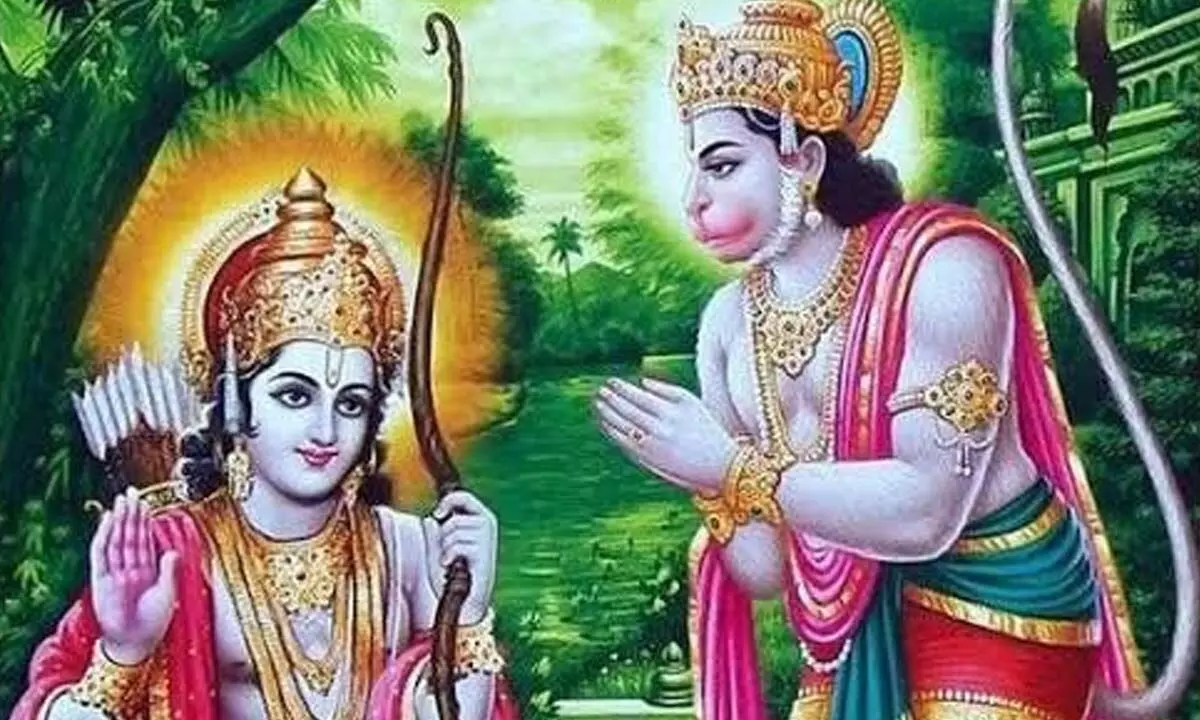Am I A Servant of God?

Lord Rama is said to have taught the knowledge of the Self to Hanuman and at the end he seems to have asked whether Hanuman had understood correctly about who he was
Lord Rama is said to have taught the knowledge of the Self to Hanuman and at the end he seems to have asked whether Hanuman had understood correctly about who he was. Hanuman is said to have replied, ‘I clearly understand that I am your servant from the point of view of the body; as a jiva, I am a minute fraction of you; and from the point of Atman (Self), I am You’. This famous reply (probably created by some teacher of Vedanta) encapsulates the message of the Upanishads. A lay person who has not done any self-enquiry calls himself a servant of God. After a primary level of self-enquiry, he realises that all the beings are but infinitesimal fragments of the cosmic being, or God, as we normally call. This awareness brings some humility in him and concern for others. Further contemplation leads him to the realisation that there is only one reality which cannot even be called God; it is infinite consciousness, Brahman, and impersonal entity manifesting as what all we see – as the universe around us, as people around us, as religions and races and as the rise and fall of civilisations.
The lower level of awareness about a cosmic being is what Vedanta calls empirical truth, that which is useful at the practical, social level. We can call it religion. The higher level of realisation is what is the absolute reality. This is the philosophical level. Upanishads talk at both levels depending on the level of maturity of a person.
The layman’s level of awareness that he is a servant of God is partly from fear and partly from greed. We have been brought up with the idea of a god in the sky monitoring all of us. Whenever there is a threat or a crisis, you seek his or her support. This is fear. There are also times when we have no fear, but we want more wealth, more comfort for ourselves or for our near and dear. Hence, we again seek God. The Gita names these two, the distressed and the greedy.
‘Humankind cannot bear very much of Reality’, as the American poet Eliot says, and Upanishads tell us what Reality is. ‘When a person considers himself different from god and worships, he becomes a beast of burden for the god’, says one Upanishad. This insult is hard to digest, but it is true. We offer prayers, do various acts of servitude. The Vedas urge the seeker to go beyond what they themselves say at the layman’s level and investigate the truth.
Shankaracharya, a bold philosopher, speaks about these two levels. For the ordinary person he advocates devotion to a god, either with form or formless. For the seeker, he talks at the higher level. In a famous passage, which may frighten or confuse a lay devotee, he says that even the idea of God is a human construct (Manisha Panchakam). The teachers of Vedanta take care to know the level of the person and teach him at his level.
Following the lower level (religion) has some advantages and some disadvantages. The advantages are that you have a god who gives succor, courage, and all human values needed for the harmonious functioning of society. The disadvantages are also too many; in fact, they outweigh the advantages. The idea of God may become a society’s identity, and the God becomes a person on whose shoulder one not only cries but a person from whose shoulder one can shoot another person who does not agree with his idea. One can also put words in the mouth of God. Here, God becomes a shield for human greed and ambition for power.
We cannot ignore either the lower level or the philosophical level. The religious level is what gives social discipline to a vast majority, and the philosophical level is what liberates us from bondage. Religion can bind a man to do what it says is the god’s will. But human society has seen peace only when both levels exist in society. The layman is happy with his religion and the wise man does not drive him into any frenzy to harm another
man’s peace.
(The writer is a former
DGP, Andhra Pradesh)








